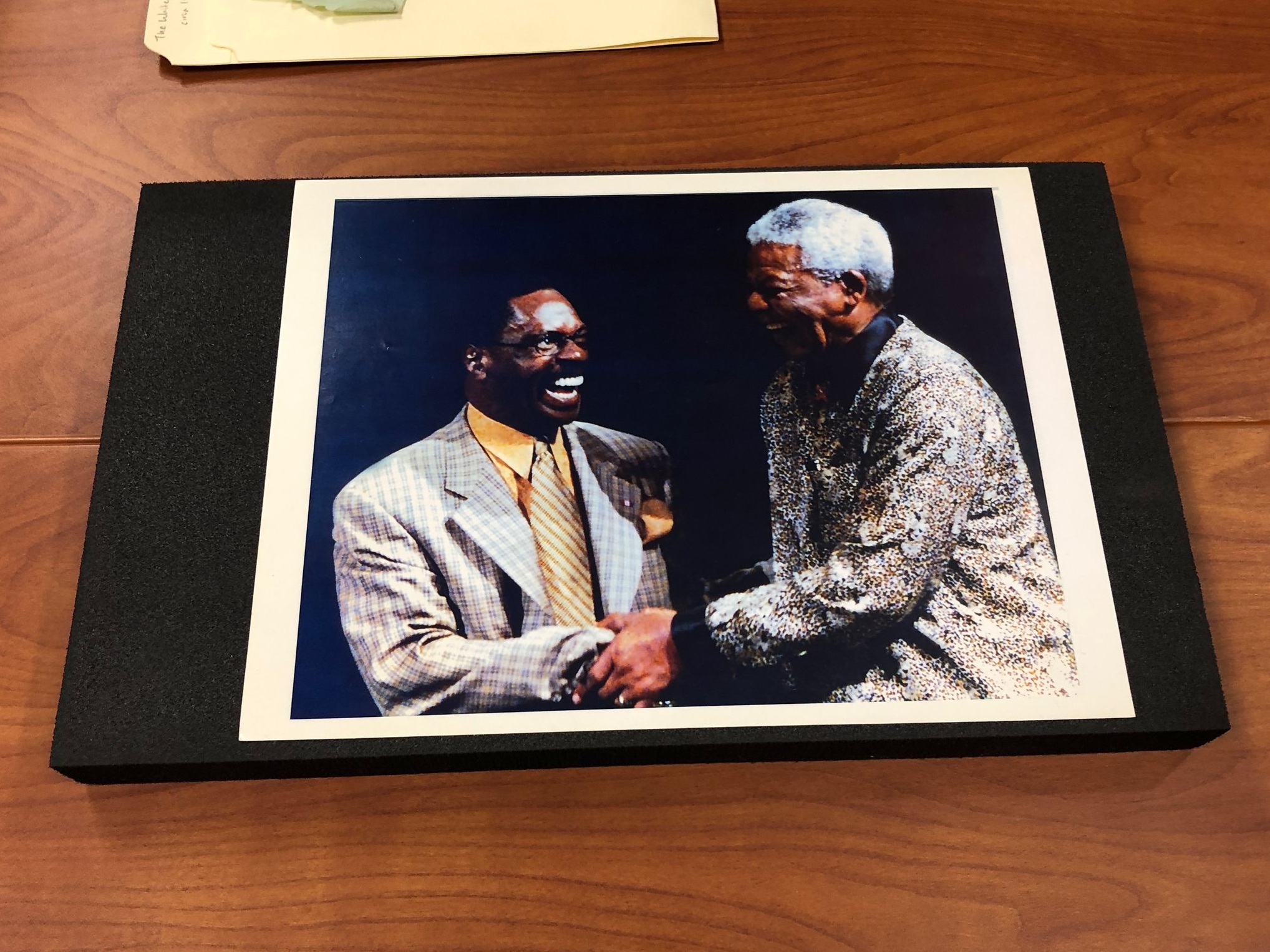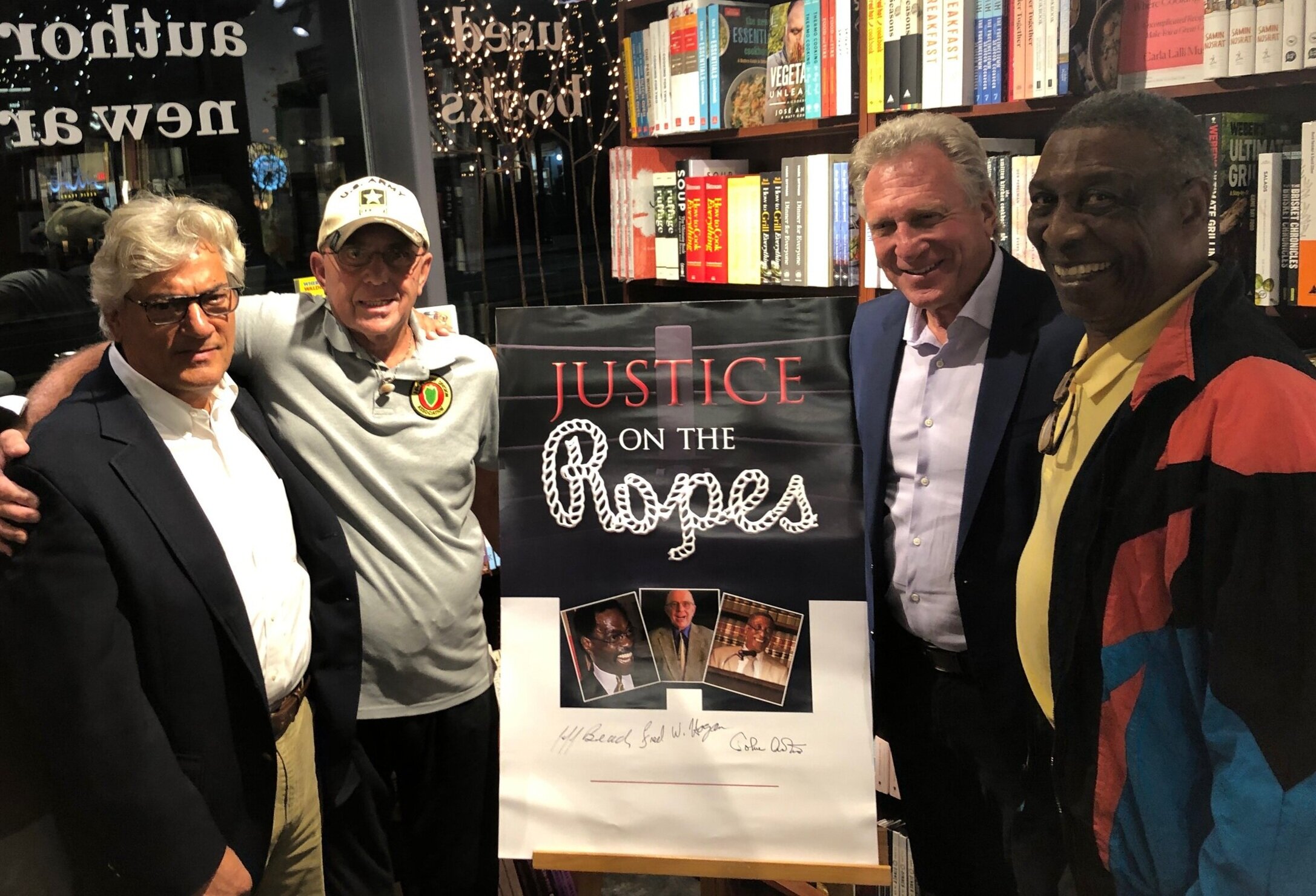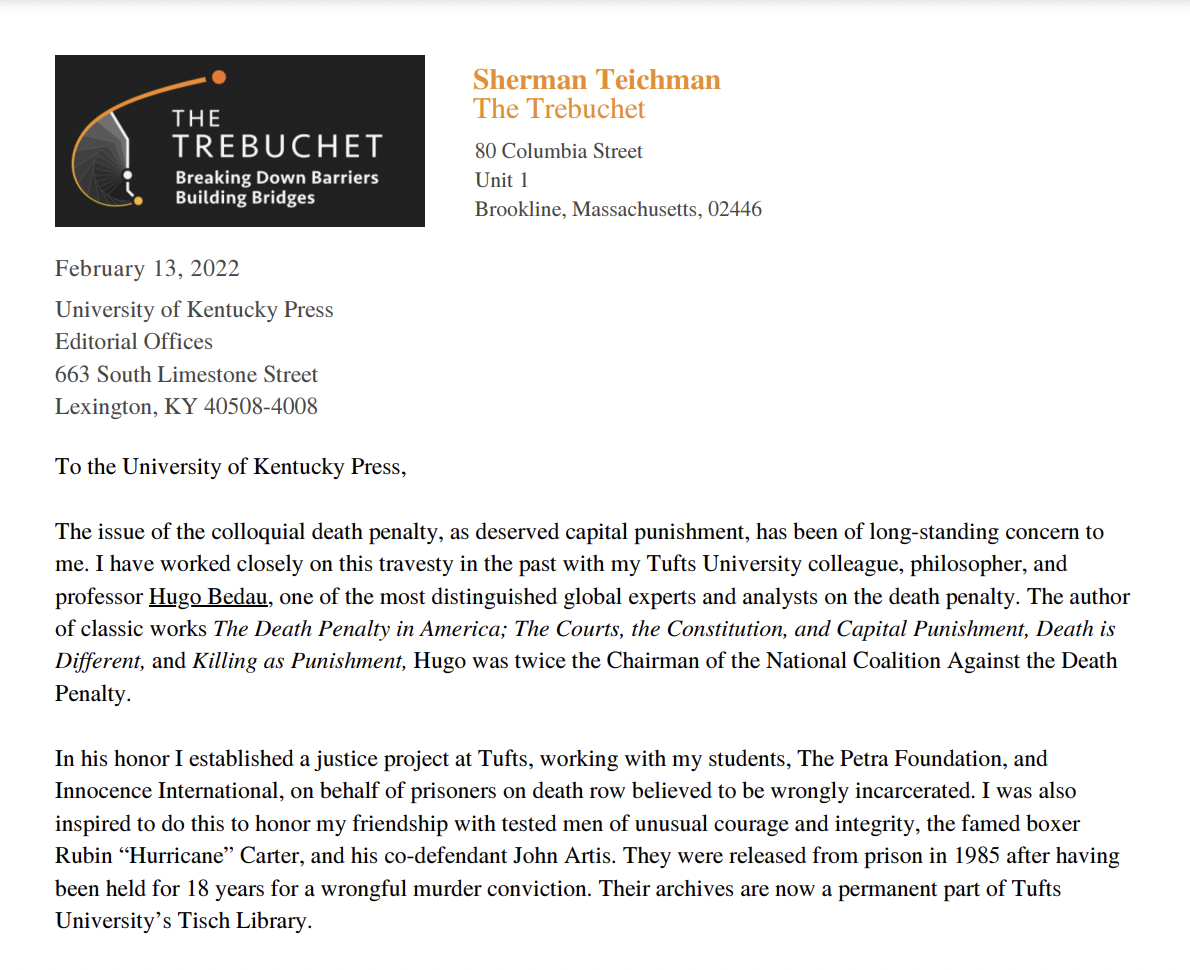Criminal Justice Initiatives
Thom Kidrin, Rubin Carter, and my wife Iris Adler
rubin carter
A decade ago, Iris and I were introduced by our friend, Thom Kidrin, to Rubin “Hurricane” Carter, the world-class boxing middleweight who in 1966 was wrongfully accused of murdering three people in cold blood in a Paterson, New Jersey bar. For nearly two decades, Rubin was imprisoned, despite protracted trials, and retrials, He was finally freed by a writ of habeas corpus in 1985. The presiding judge declared that Rubin’s conviction had been "predicated upon an appeal to racism rather than reason, and concealment rather than disclosure." Thom never abandoned Rubin and was critical to his keeping his sanity during his imprisonment and extended periods of solitary confinement.
Iris and I befriended Rubin in the last years of his life. I had an incredible opportunity to meet someone who had transcended bitterness, had been honored by Nelson Mandela at the inaugural World Reconciliation Day celebrations in Melbourne, Australia, co-founded the Toronto-based Association in Defence of the Wrongly Convicted and became for me the quintessential paragon of resilience, humanity and practical realism.
I brought Rubin to Tufts in 2011, to speak on his experiences and serve as a role model for the spirit of reconciliation, in an event I hoped would have a positive impact on a campus that I was beginning to see as radically polarized and siloed.
Thom Kidrin, John Artis, Erin Kelly, Hilary Binda, and others
I was also privileged to meet Rubin’s extraordinary co-defendant, wrongfully convicted with him, John Artis, who spent eighteen years in prison because, as he put it to me, “my mother taught be not to lie.” He had refused to identify Rubin as one of the shooters, despite repeated police and prosecutorial entreaties with the lure of freedom, and was in turn convicted of being Rubin’s accomplice.
Artis was a life-long friend of Rubin’s and took care of him when Rubin was dying of prostate cancer, “ On his passing John remarked “Those who are wrongfully incarcerated lost a champion.” “He dedicated his life to helping the people that need the same kind of assistance that we needed, who have been wrongfully convicted and incarcerated.”
We negotiated with John and Rubin to bring their Innocence International project to Tufts, and the archive of Rubin’s account of his arduous years of imprisonment and appeals.
The intent was to create a vibrant and growing resource that would inspire and instruct Tufts and other university students in a broader initiative to collaborate with faculty and law school students and advocate for other prisoners, wrongfully accused and worse, wrongfully convicted. Of special concern are those on death row.
I brought the archives to Tufts as one of my very last initiatives before I became Emeritus. I envisaged and intended a larger effort, into which it would be integrated, the Justice Project, a collaboration with the Fellows of the Petra Foundation, an organization honoring the deceased wife of a good friend, Amb. John Shattuck. The Petra Fellows are an extraordinary cadre of people who were acknowledged and honored annually for their work on behalf of justice for marginalized, ignored and demeaned people, whether Native peoples, transgender individuals, or victims of human trafficking. We had excellent collaborators, Professor Erin Kelly of the Department of Philosophy and Professor Peniel Joseph.
As proof of concept, we ran several projects with the Foundation. One was on the fate of people released after years of incarceration into society in partnership with a Petra organization, Resurrection After Exoneration. Another was with My Life My Choice, an extraordinary organization saving young exploited Boston girls forced into prostitution, in brothels even located in such places such as Fresh Pond Circle in Cambridge, MA and across from the John Hancock Building in downtown Boston.
I reached out to one of our Institute’s Exposure program photojournalism leaders, Rachel Boillot, to run a leadership class with the girls rescued by My Life My Choice utilizing photography to record their experience, and enable them to transcend their exploitation. They understood it as cathartic. We helped Rachel publish a book documenting their experiences and reactions, Through Our Eyes. An exhibition of the photographs and stories of these young women were shown in Boston City Hall for several months, a program we organized with then-Boston Congresswoman Ayanna Pressley, who keynoted the opening and introduced the teenagers.
Brookline Booksmith signing for Justice on the Ropes
From left to right: Me, Fred Hogan, Thom Kidrin, John Artis
In September 2019, we organized a book talk event at Brookline Booksmith. for Justice on the Ropes: Rubin "Hurricane" Carter, Fred W. Hogan, John Artis and The Wrongful Conviction Movement. We brought John, Fred, the public defender who tirelessly investigated and advocated for their case, and Jeff Beach, former journalist and Fred’s former colleague in the New Jersey public defender’s office.
At a benefit concert to endow student scholarships for Roxbury Community College, organized by a close friend, the jazz impresario, Ted Kurland, we met the president of Roxbury Community College, Valerie Roberson. Discussions are underway to potentially linking RCC’s criminal justice program to the Innocence International archive of Rubin "Hurricane" Carter.
This idea is being revitalized by myself, Florence Graves — head of the Justice Project at Brandeis University — and Erin Kelly. It will be in honor of both Rubin and John Artis. If I were ever asked to name the ten people I admired most out of all of the thousands of people that I invited to speak at public forums and classes that I taught, John and Rubin would be there. Perhaps especially John, who did not have the notoriety and hence the massive public attention that Rubin attracted, and who did what I doubt and worry that I would not have the courage to do — to spend decades in prison for a crime I never committed and to refuse the offer to be freed if only I implicated Rubin, who would have undoubtedly faced the death penalty. Here is the Washington Post obituary that describes the admirable John Artis.
final words
Marc Asnin, “Selfie Against the Death Penalty”
A very close friend, photographer Marc Asnin, a recipient of the RFK Human Rights Photography Award, is finalizing his longterm project, “Final Words.” Marc’s daughter, Isabel Weiner, was my student in 2013-14.
I sit on the Advisory Board of Final Words, together with, among others, Florence Bellivier, the President of the World Coalition Against the Death Penalty and Deputy Secretary General of the International Federation for Human Rights. We help with raising the necessary funds, the exhibition materials, and the subsequent development of a curriculum for educational purposes in high schools and universities. I believe this of Marc’s work:
A stark, unflinching, yet uniquely human, compassionate and sensitive perspective on the brutalizing reciprocity of crime and punishment. Final Words, is a powerful contribution to the critical discourse we must engage in, as citizens over what are “the evolving standards of decency” regarding our Constitution’s Eighth Amendment prohibition of “cruel and unusual punishment.” Hopefully it will influence us all hasten the progress of a “maturing society” to restrict, and hopefully to ultimately abolish the death penalty.
A Letter to the University of Kentucky Press Recommending Marc Asnin for Publication









